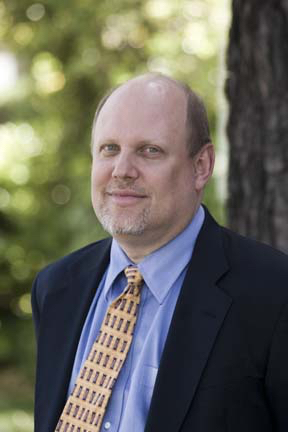PSB 2017 Keynotes

- Director, Stanford Center for Biomedical Ethics
- Thomas A. Raffin Professor of Medicine and Biomedical Ethics and Professor of Pediatrics
- Stanford University
Ensuring that precision medicine will benefit a racially and ethnically diverse population will require broad public participation in research. In particular, groups that have been traditionally underrepresented in research will need to buy in to the use of biological samples and their electronic health records for research. Empirical study of the attitudes of diverse populations reveals a number of ethical and policy challenges related to the governance and uses of clinical data and samples in research. Understanding the fundamental values underlying patient perspectives towards this research will enable researchers to respect and honor potential participants and to discharge their obligations and responsibilities to stakeholders. Sensitivity to the language, metaphors and images used to conceptualize research can play a critical role in this process. This will increase the likelihood of successful recruitment from populations that have been largely left out of genomics research.
David Magnus, PhD is Thomas A. Raffin Professor of Medicine and Biomedical Ethics and Professor of Pediatrics at Stanford University, where he is Director of the Stanford Center for Biomedical Ethics and co-Chair of the Ethics Committee for the Stanford Hospital and Clinics. In addition, he is past President of the Association of Bioethics Program Directors and is Editor-in-Chief of the American Journal of Bioethics. Dr. Magnus received his PhD in philosophy from Stanford University and has published articles on a range of topics in bioethics, particularly on issues concerning research ethics, genetic technology, cloning, stem cell research, organ transplantation and issues at the end of life. In 2003-2004, he was a member of the Secretary of Agriculture’s Advisory Committee on Biotechnology in the 21st Century. He currently serves on the California Human Stem Cell Research Advisory Committee and the NIH Precision Medicine Initiative IRB. He is the principle editor of a collection of essays entitled Who Owns Life? (2002) and his publications have appeared in Science, Nature Biotechnology, New England Journal of Medicine, Annals of Internal Medicine, Pediatrics and the British Medical Journal.

- Lamond Family Foundation Distinguished Professorship in Human Genetics
- Director, Institute for Human Genetics
- Professor, Epidemiology and Biostatistics, University of California at San Francisco
- Adjunct Investigator, Kaiser Permanente Division of Research
Linking genomics data to large scale cohorts with comprehensive longitudinal electronic health record data provides unique opportunities for a variety of genetic epidemiologic studies. Here we discuss the Kaiser Permanente Northern California Research Program on Genes, Environment and Health (RPGEH) Genetic Epidemiology Research on Adult Health and Aging (GERA) cohort. This cohort has genome-wide genotype data and telomere data linked to EHR and survey data on over 100,000 participants. In addition to standard GWAS of ICD9-based diagnoses and measured risk factors, the data present opportunities to investigate issues of population structure, heritability, comorbidity, pleiotropy and pharmacogenetics, among others. We present a few examples related to cardiovascular risk factors and cancer.
Neil Risch, Ph.D. is the Lamond Family Foundation Distinguished Professor in Human Genetics, Director of the Institute for Human Genetics, and Professor and previous co-chair of the Department of Epidemiology and Biostatistics at the University of California, San Francisco. He is currently also the interim co-director of the Genomic Medicine Program at UCSF. For the past 20 years, he has also been an adjunct investigator at the Kaiser Permanente Northern California Division of Research. Dr. Risch’s research area is genetic epidemiology and statistical human genetics. He has developed novel methods for discovering and characterizing genetic variants underlying disease predisposition, and has applied those methods to the discovery and characterization of genetic and environmental factors underlying a variety of disorders. His research also focuses on population genetics, particularly how genetic variation is distributed in the human population. Most recently, he has collaborated with investigators at the Kaiser Division of Research and UCSF on the development of a very large cohort used to study molecular and environmental factors involved in age-related disease and healthy aging. Dr. Risch is a member of the National Academy of Medicine, a fellow of the California Academy of Sciences, a fellow of the American Association for the Advancement of Science, former director and past President of the American Society of Human Genetics, and recipient of the Curt Stern Award from the American Society of Human Genetics.
